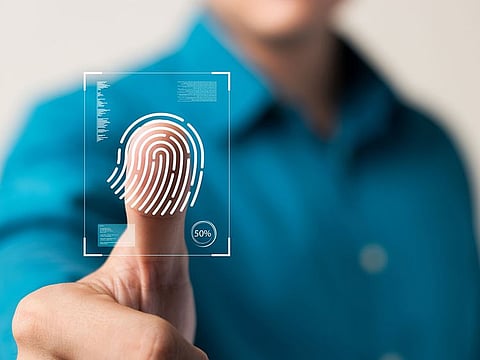Kuwait to block bank accounts for individuals who fail to undergo mandatory fingerprinting
Gradual curbs on accounts whose owners fail to meet deadlines

Cairo: Kuwaiti authorities plan to gradually restrict access to bank accounts of citizens and expatriates who fail to meet respective deadlines for undergoing mandatory biometric fingerprinting, a media report said.
Earlier this year, Kuwait extended deadlines for expatriates and citizens to undergo biometric fingerprinting and stressed importance of compliance.
Now, the deadlines are extended to September 30 for Kuwaiti citizens, and 31 December for expatriates. The extension aims to facilitate the procedure for citizens and experts, and fast-track it, the Interior Ministry has said.
As the deadline is expiring by the end of this month for citizens, the Central Bank of Kuwait has directed banks to ready their systems to slap curbs on the violators' accounts, Kuwaiti newspaper Al Rai reported.
Four-phase curbs will be enforced to these accounts culminating in a full freeze, the paper quoted what it described as well-informed sources.
To prompt account holders to expedite undergoing the fingerprinting, banks will apply gradual steps. Under the four-phase plan, banks will initially send messages to all customers urging them to undergo the fingerprinting before the deadline expiry. The messages are likely to be sent as of the current week.
Secondly, there will be a halt to all electronic channels that show assets in accounts, bank statements, money transfers and other online transactions for the non-compliant clients on September 30.
Repeated warnings
The violators' credit cards will be suspended on October 31, according to the report. Their accounts and assets in banks will be blocked on December 1.
Banks are set to follow the same steps for expatriates, who fail to meet the fingerprinting deadline, the paper said.
The sources expected that instalments due to government and private sector agencies will continue to be deducted from the frozen accounts. The freeze will be reversed once the client readjusts the fingerprinting status.
In a facilitating step, Kuwaiti authorities have introduced a home biometrics service for the elderly and ill people, who are unable to head to the Interior Ministry’s centres. Authorities have repeatedly warned that failure to undergo biometric fingerprinting will lead to a halt to dealings with the government for the non-compliant person.
The ministry has said biometric fingerprinting for Kuwaitis, other nationals of the Gulf Cooperation Council countries, and expatriates is conducted at Kuwait’s border outlets, the Kuwait International Airport, and designated centres at several security premises across the country.
Sign up for the Daily Briefing
Get the latest news and updates straight to your inbox



